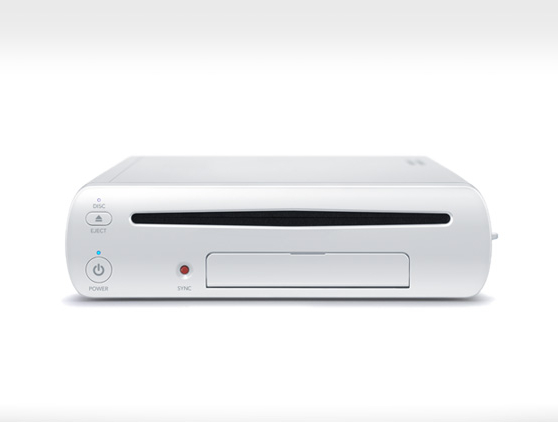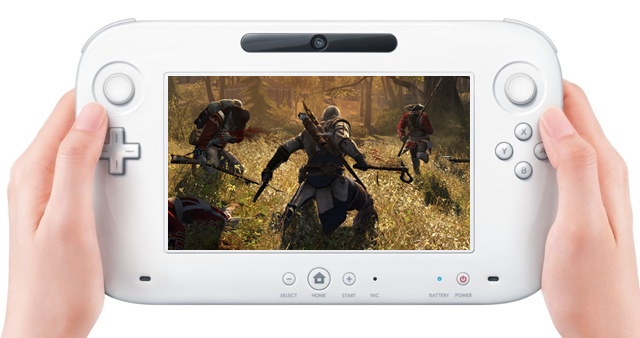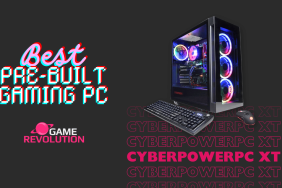Looking For Hits is a new weekly discussion between PlayStation Lifestyle's Managing Editor Sebastian Moss and GameRevolution's News Editor Daniel Bischoff that talks about the biggest news stories of the week.
This week, the rumor mill got to turning for Nintendo's upcoming home console, the Wii U. Third parties, release dates and raw power are on the table.
If rumors that the Wii U is less powerful than the Xbox 360 and PS3 prove to be true, how will Nintendo’s console stay in lockstep with the current generation? If the Wii U is just as capable as the current HD consoles, what does it mean for the next generation of Xbox and PlayStation hardware?
![]() Sebastian: I think that, while it might not be as powerful as the PS3 or 360, it should be powerful enough for devs to manage current gen-level games on a gameplay level, even if it requires less res or slower framerates, or a foggier fog of war—after all, it’s going to have ACIII and Colonial Marines, etc. So I think, at first, people won’t really take too much notice. I’ll be like a PS3 or a 360, but white and with a silly controller.
Sebastian: I think that, while it might not be as powerful as the PS3 or 360, it should be powerful enough for devs to manage current gen-level games on a gameplay level, even if it requires less res or slower framerates, or a foggier fog of war—after all, it’s going to have ACIII and Colonial Marines, etc. So I think, at first, people won’t really take too much notice. I’ll be like a PS3 or a 360, but white and with a silly controller.
The problem is, if the rumor is true, there’s going to be a real issue come PS4/NeXtbox-era. If specs are similar to the current gen, publishers will happily port over their games to the Wii U, even though the install base will be smaller (it’s new) and the crowd might not be as core. The costs won’t be that high as it is just a simple port. And it’ll stay like that for a few more years, as the PS3 and 360 will still get some support going into the next gen.
But once that support completely dries up, publishers are going to have to create games specifically with the Wii U in mind, and that’s when the costs go up. That’s when you get games that are awful, dumbed down garbage, or games that are designed for the casual audience.
Of course, there’s a chance that the Wii U could steal the core market and lead next gen for core gamers. In that case, publishers will commission good core games for it, but it does mean you’ll have to put up with old hardware for another gen.
![]() Daniel: When people start talking about how next generation hardware is actually less powerful than current generation hardware, I have to hang my hat and wonder why these companies are allowed to make decisions. Regardless of that, I have to point out that the biggest moneymaker of this generation has done little to nothing to change the way the game looks from iteration to iteration.
Daniel: When people start talking about how next generation hardware is actually less powerful than current generation hardware, I have to hang my hat and wonder why these companies are allowed to make decisions. Regardless of that, I have to point out that the biggest moneymaker of this generation has done little to nothing to change the way the game looks from iteration to iteration.
Call of Duty: Modern Warfare 3 looks only an iota better than Modern Warfare 2, or Modern Warfare before that, or even Call of Duty 2. The engine hasn’t changed despite the rapid growth of capabilities other developers have proven. Even Unreal Engine 3 has grown in baby steps, but developers are happy to work with it because they know what they’re doing.
If the Wii U can capitalize on that mentality and crank out big hits, then I don’t know if “less powerful hardware” will really be that big of a hurdle for consumers to jump, either.
Gearbox Software’s Brian Martel says that the Wii U has “more RAM” than the current HD consoles and a “really great processor.” How important are these two components in competing with both the current-gen and next-gen hardware from Sony and Microsoft?
![]() Daniel: While I’m no hardware expert, I can definitely identify the way a significant increase in RAM has propelled the PlayStation Vita into a handheld class all its own. Developers who turned to the PC as their lead platform in development called for 10 times as much RAM in the next generation of consoles to compensate for the ballooning size of assets like textures and cinematics.
Daniel: While I’m no hardware expert, I can definitely identify the way a significant increase in RAM has propelled the PlayStation Vita into a handheld class all its own. Developers who turned to the PC as their lead platform in development called for 10 times as much RAM in the next generation of consoles to compensate for the ballooning size of assets like textures and cinematics.
I don’t think the Wii U needs just “more RAM". I think it needs tons and tons more RAM to gain an edge on the current generation of HD consoles, entice developers who’ve started to focus more on the PC again, and stay competitive after the PS4 and Next Xbox debut on the market.
Of course, a “really great processor” would help developers utilize all that RAM, but I think we don’t have enough specifics to make a call just yet.
![]() Sebastian: Yeah, as a journo that has primarily covered all things PlayStation, I constantly hear about the woes of not enough RAM. Computer geeks can argue all day about which processing chip is better, or if The Cell is actually any good, but most can agree on the fact that more RAM makes things better.
Sebastian: Yeah, as a journo that has primarily covered all things PlayStation, I constantly hear about the woes of not enough RAM. Computer geeks can argue all day about which processing chip is better, or if The Cell is actually any good, but most can agree on the fact that more RAM makes things better.
The Wii U has a big problem: It has a second screen. That means the hardware needs to work overtime to make a game play on two screens. It’s like 3D, but more complicated. Sure, they could make the second screen a mostly pointless map or radar like in the majority of DS games, but that’d piss me off. The second screen is super expensive and different. At least make it worthwhile.
Even if the Wii U has a lot of RAM and a nice processor, the general consensus is that it won’t match the next PlayStation or Xbox, so it’ll at least need enough to make the second screen worth it and give it a unique edge.
Gearbox’s Randy Pitchford has called the Wii U “a really nice bridge” to the next generation of consoles. How does that role affect developer and consumer perception of Nintendo’s next home console?
![]() Daniel: I’m sure that Nintendo hoped the Wii U would serve as “a really nice bridge” to the next generation, but I think the Japanese company also hoped the bridge would have extended further. The Wii U has forced Microsoft and Sony to lay down the cards a little earlier than they would have liked, but the industry doesn’t seem patient enough for a true 10-year console cycle. Thus, the Wii U will probably serve as a nice bridge, but will people still want to walk on it when there’s dry land underneath?
Daniel: I’m sure that Nintendo hoped the Wii U would serve as “a really nice bridge” to the next generation, but I think the Japanese company also hoped the bridge would have extended further. The Wii U has forced Microsoft and Sony to lay down the cards a little earlier than they would have liked, but the industry doesn’t seem patient enough for a true 10-year console cycle. Thus, the Wii U will probably serve as a nice bridge, but will people still want to walk on it when there’s dry land underneath?
In regards to developer perception, I think the industry’s top talent will appreciate and utilize the Wii U to its fullest potential. The hardware seems to be on track to allow developers to feel familiar, allowing the kind of products that are only seen at the tail end of a console generation. In this way, the Wii U will serve as a nice buffer to the growing pains that new hardware usually brings about for developers.
![]() Sebastian: I don’t know, can’t say I agree with you or Randy. There’s basically no time for a bridge—developers are working on next gen games on all systems. Look at a job listing from a major publisher, and chances are you’ll see “working on a next gen title”.
Sebastian: I don’t know, can’t say I agree with you or Randy. There’s basically no time for a bridge—developers are working on next gen games on all systems. Look at a job listing from a major publisher, and chances are you’ll see “working on a next gen title”.
The only games this will serve as a bridge for is the annual sports games like Madden and FIFA. Most core next gen new games won’t come at the Wii U launch – there’ll be old, ‘upscaled’ games from this gen, and new current gen games. But you won’t see the proper next-gen titles until the ‘proper’ next-gen consoles are out.

A Japanese retailer reportedly leaked November 18th as the Wii U’s launch date in America, with a one week delay in the Japanese market. Is this date even plausible?
![]() Sebastian: It’d make sense—everybody loves Christmas. October might have been better, but that’ll be dominated by iPhone 5 headlines.
Sebastian: It’d make sense—everybody loves Christmas. October might have been better, but that’ll be dominated by iPhone 5 headlines.
Nintendo tried a March release with the 3DS, and it didn’t work. Everybody was all “oh my god, it’s not selling, it’s gonna die, Ninty is dooomed”. But then, come Christmas, it was on fire (in the good way), and everybody raved about how incredible it was and how it was outselling the DS.
I think Nintendo has realized that even though they are a household name and have a huge brand, they aren’t strong enough to launch in a dull period unless they have a ton of Mario games. I don’t think the Wii U will have a great launch lineup (consoles rarely do), so they’ll want to appeal to the Just Dance 4U crowd and get in on some hot, sticky Christmas action.
![]() Daniel: I definitely think the date is legit. It’s a Sunday. It’s right around the date of previous holiday launches for them. As viable as November 18th sounds, I think the source is bullshit and they just have a really good guess.
Daniel: I definitely think the date is legit. It’s a Sunday. It’s right around the date of previous holiday launches for them. As viable as November 18th sounds, I think the source is bullshit and they just have a really good guess.
First, the website is called WiiUDaily. Second, they apparently heard this from a Japanese retailer, who apparently knows the US launch date (and provides the detail that the Japan launch is a week afterwards). Why would a Japanese retailer leak the date to an American outlet? This is a stone’s throw from an “anonymous source".
What price does the Wii U need to launch at to be a success, taking into consideration the falling price of the Xbox 360 and PS3?
![]() Daniel: I guarantee that you’ll see steep cuts in price for both Xbox 360 and PS3 this holiday season to undercut the Wii U’s launch. There is no doubt in my mind that Microsoft and Sony will be doing their best to undermine Nintendo as the house that Mario built that beat the big boys to market. That said, there is something about new tech and the family-friendly persona Nintendo carries with them that will take the console all the way to the bank.
Daniel: I guarantee that you’ll see steep cuts in price for both Xbox 360 and PS3 this holiday season to undercut the Wii U’s launch. There is no doubt in my mind that Microsoft and Sony will be doing their best to undermine Nintendo as the house that Mario built that beat the big boys to market. That said, there is something about new tech and the family-friendly persona Nintendo carries with them that will take the console all the way to the bank.
The Wii U doesn’t have to be sexier or completely groundbreaking. 720p gaming will look just fine, but it has to be affordable. I don’t see the Wii U matching the Wii’s success at all, so I have to rule that out right away. However, I think the Wii U can have a great first holiday season if it comes to market at $250 or lower, and comes bundled with a game as the Wii did with Wii Sports.
![]() Sebastian: I’m sure we’ll see a 360 price cut and more Kinect advertising. PS3? I don’t know, Sony isn’t in the best of financial situations and Kaz is under pressure to make profit right now, rather than in 3 years, from a loss-leader sale.
Sebastian: I’m sure we’ll see a 360 price cut and more Kinect advertising. PS3? I don’t know, Sony isn’t in the best of financial situations and Kaz is under pressure to make profit right now, rather than in 3 years, from a loss-leader sale.
The way I think Sony will try to undermine the Wii U (and MS will do it too), at least among the core, is talk about their next gen. If the U is out on Nov 18th, Killzone 4 will probably be revealed on the 17th.
To go after the casuals, Nintendo does need to go low, but the question is how much have they learned from the 3DS? The Wii came in at $250 and sold like strippers covered in cocaine. Nintendo—while happy they were richer than the Queen—regretted that they sold it at $250, they could have just have easily pulled off $280 and gained a lot more money. They tried going high with the 3DS, but it didn’t work.
The Wii U is to the Wii as the 3DS is to the DS—slightly more powerful and has an expensive gimmick. That doesn’t sell hardware as much as Nintendo would like to think. Going for the $250 sweet spot would of course be terrific, but I’m sure they could survive pretty happily at $299. I just hope the screen controller doesn’t cost them too much to make.
With the success of the 3DS seemingly made solely on the back of Mario and other core Nintendo franchises, does the Wii U need third-parties?
![]() Sebastian: Nope.
Sebastian: Nope.
Quite a few core gamers will buy the U to play Zelda, Mario, and Nintendo’s other classics. I don’t see them playing GTA VI or Batman Arkham Assault Course on the Wii U when they can play it on the more powerful PS4 and 720 anyway.
The only publisher that Nintendo even notices is Ubisoft as they made games that really worked on the Wii— Just Dance and Rayman Raving Retards. [How are people going to dance with a second screen? ~Ed. Nick] Ubisoft only managed to really do that at the end of the Wii’s lifecycle, and they don’t plan on missing out this time. They are investing heavily in the Wii U, and I’m sure there will be more dance games than pixels before long.
If Ubisoft’s gamble doesn’t pay off and the console fails, that won’t be down to other publishers not getting involved, it’ll be down to a pissed off core fanbase and the casual market being more interested in Kinect, iPhones, and Draw AnythingVille for Facebook.
![]() Daniel: Agreed, the Wii U will probably do “OK”, but not as good as the Wii. There are far more gaming distractions for the consumers who are only willing to get their feet wet with gaming. They already own the Wii, why do they need to own this one too?
Daniel: Agreed, the Wii U will probably do “OK”, but not as good as the Wii. There are far more gaming distractions for the consumers who are only willing to get their feet wet with gaming. They already own the Wii, why do they need to own this one too?
Trying to hold onto that Wii branding might actually hurt Nintendo on this one. “What’s a U? We already have the Wii.” With so many peripherals in the Wii’s console cycle, people might think that the tablet is just an add-on for a machine they haven’t been playing much anyway.
I’d like to see Nintendo be a strong contender in the core market this generation, so I’m doing my best to stay hopeful, despite everyone’s doom and gloom.
We'll be back next week on PlayStation Lifestyle, talking about what's happened in Sony's neck of the woods, with another multiplatform-focused roundtable the week after.







